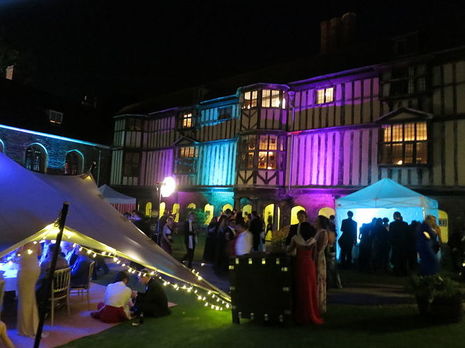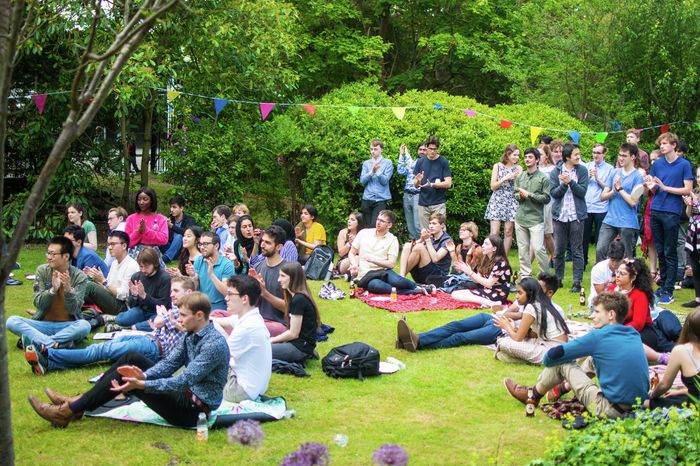Why May Week should change, and how we can make it happen
With the pandemic changing the way we conduct so much of our academic and social lives, Jacob Smith and Felix Haynes argue that May Week should be no exception.

Cambridge is full of traditions. Perhaps none are as revered as May Week: for many, the decadent May Balls, with their all-night festivities and free-flowing champagne, represent the high-point of post-exam freedom and the end of a stressful academic year.
Yet, like many aspects of the ‘traditional’ Cambridge experience, May Week has been turned upside-down by the pandemic. The usual celebrations were cancelled last year and, despite the hope a vaccine brings, disruption seems likely again in 2021.
While we all count down the days until we can regain some normality, this forced break from our usual routines has also presented us with a chance to re-evaluate our traditions, and to find ways of improving them. The move to online lectures, for instance, has made teaching more accessible, and has given us the ability to slow down - or speed up - our teaching, a freedom that will hopefully prove enduring.
“This isn’t about abandoning our traditions, but forging new ones that can stand alongside the old.”
It’s not just about academic work, either. Forced apart, we have had to think of creative ways to bring the Cambridge community together. Societies have left simple Zoom quizzes in the distant past: now they host talks with speakers from around the world and create virtual scavenger hunts, using new platforms and offering a wider variety of events than the pub or club nights of old.
We can - and should - take a similar attitude to May Week. This year is a real chance for us to take stock and re-evaluate; this isn’t about abandoning our traditions, but forging new ones that can stand alongside the old. We can combine the unique spirit of celebration that characterizes May Week with doing good.
Even before the pandemic, there were signs of a positive shift. In 2016, the ‘Sustain-a-ball’ accreditation scheme began, encouraging environmentally friendly schemes such as committing to 75% of food options being vegetarian, and resource-sharing between balls. Following its success, ‘Access-a-ball’ was founded this year, using the same model to encourage event organisers to commit to greater accessibility.
Yet, despite the success of initiatives like these, May Week traditions are entrenched in hundreds of years’ worth of history that may make it difficult to realise lasting change. The disruption wrought by coronavirus is thus a rare opportunity.
“Engagement with charity could, and should, be a central theme of May Week itself.”
This is an opportunity to move May Balls decisively in the direction of sustainability and accessibility, as well as to provide opportunities for attendees to do good. Many already offer the option to add a charitable donation to the cost of Ball tickets, but engagement with charity could, and should, be a central theme of May Week itself.
The May Week Mega Event was organised after the cancellation of all events in 2020. This four-and-a-half-hour live-streamed celebration of Cambridge aimed to bring our community together, whilst raising money to fight current and future pandemics. The 10,000 attendees, and the £14,000 raised, are testament to what we can achieve. Free to all, the Mega Event harnessed the altruism of over 500 students and staff, and offered a glimpse at what a new generation - a new tradition - of May Weeks could look like. Positive, altruistic, celebratory events are not a replacement for our traditional May Week, but should be used to enrich it.
One of the hosts of the Mega Event, May Week Alternative (MWA), is a movement that exemplifies the shift towards a new conception of May Week. Founded in 2018, MWA describes itself as a ‘charitable movement encouraging students to adopt a positive approach towards deliberate, effective giving’. The group encourages students to make a significant donation to charity in Lent Term, then come together at a summer party to celebrate their collective impact.
Now in its fourth year, MWA has grown from 40 students raising £12,000 in 2018 to over 430 raising £110,000 in 2020. There is thus a demonstrable student appetite for a movement that emphasises the potential positive impact we could have. Students can engage with MWA alongside all the best May week traditions, adding something to balls, garden parties and punts to Grantchester.
May Week is in flux. The pandemic has given us all an opportunity to enshrine these ideas as new traditions to enhance our future experiences; there couldn’t be a better time to engage with movements that want to make this happen. Cambridge is full of traditions - 2021 could be the start of some new ones.
 News / Caius mourns its tree-mendous loss23 December 2025
News / Caius mourns its tree-mendous loss23 December 2025 News / Clare Hall spent over £500k opposing busway 24 December 2025
News / Clare Hall spent over £500k opposing busway 24 December 2025 Comment / Yes, I’m brown – but I have more important things to say22 December 2025
Comment / Yes, I’m brown – but I have more important things to say22 December 2025 Interviews / Politics, your own way: Tilly Middlehurst on speaking out21 December 2025
Interviews / Politics, your own way: Tilly Middlehurst on speaking out21 December 2025 Comment / The ‘class’ of Cambridge24 December 2025
Comment / The ‘class’ of Cambridge24 December 2025








